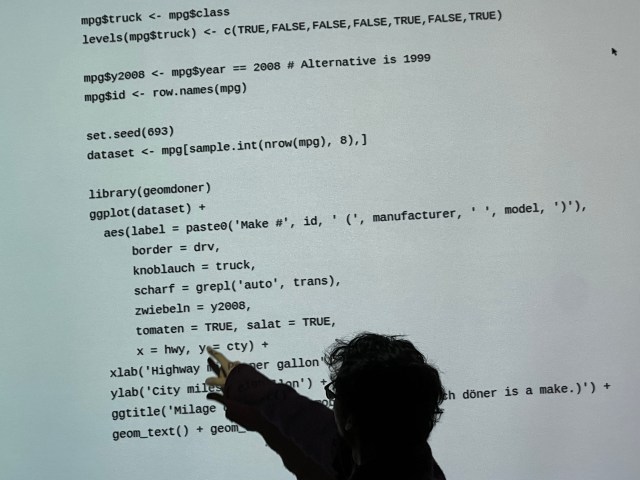I’m at the Piksel festival listening to Thomas Levine’s artist talk about his data visualisations – or uh, sonifications – in R.
He made data music from the iris dataset that is used in so many R tutorials…
Making data music is just like doing data science – people like it because it’s data, but it really doesn’t matter because all the data is really just random noise.
Thomas Levine at the Piksel festival. Bergen 18.11.2022
Here’s how to represent data as a kebab in R, using the geom_donor function:

It’s hidden by his arm, but after geom_text() there’s a geom_donor(). That outputs instructions on exactly how to make the kebab to
You can do the same analysis on almost any dataset, Levine comments. At first he thought it was fabulous – and then he realised it was all useless. You end up with the same patterns anyway. Data analysis makes you feel smart for finding the patterns – but the patterns are meaningless.
To me, data and technology is a religion – it’s the faith that technology will save us. And that’s OK, but now this take is being forced on us. we should have the choice to choose other religions. Now – Thomas Levine, artist talk at Piksel
Thomas Levine at the Piksel festival. Bergen 18.11.2022



